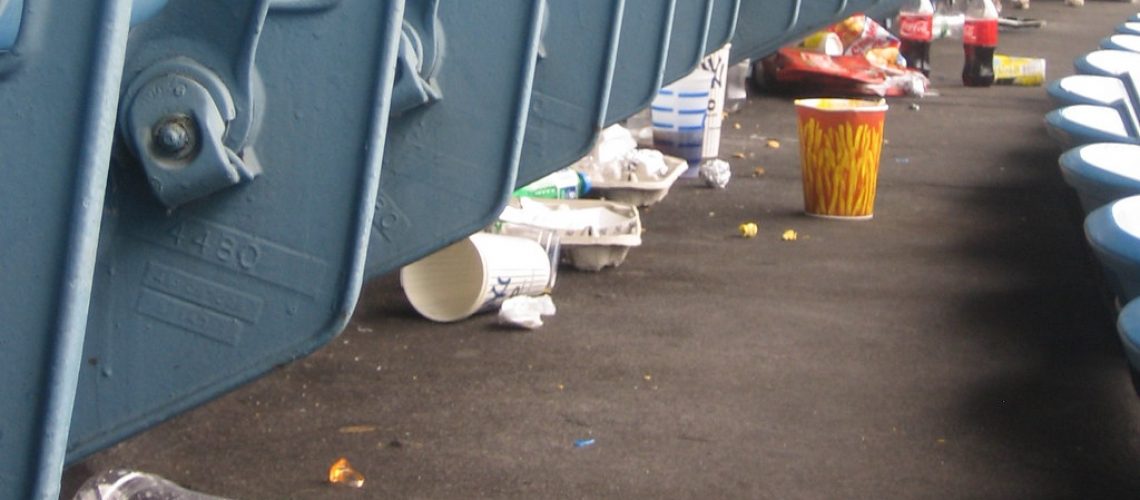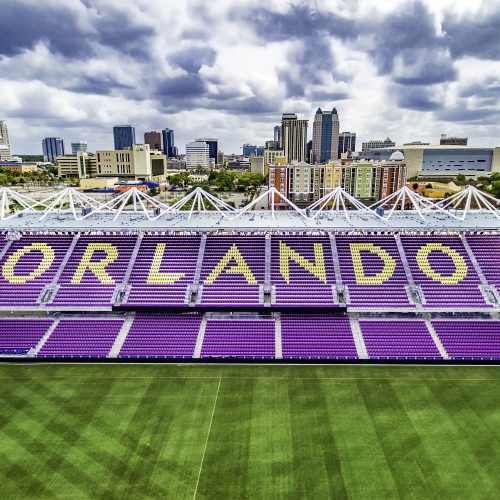

Rachel Gutner
- June 11, 2019
- 2:49 pm
Sustainability in Sports
One person can make a significant impact, but ensuring sustainability reaches a broad and diverse audience is key to the initiative’s success. The NFL has recently committed to the Green Sports Alliance, an organization that promotes sustainability at sporting events. One of these often overlooked audiences are sports fans. While cheering on their favorite teams, massive concessional waste can be created.
Here in Orlando we strive for sustainability and resilience, resulting in our new LEED certified Soccer Stadium. The stadium includes all-LED sports lighting, which uses less energy, is more accurate, and creates less light pollution. The city of Orlando also strives to reduce waste by providing residents free compost bins and is attempting to become a zero-waste community by 2040. The Orlando Magic’s Amway Center, which is LEED Gold certified, saved almost $1 million a year, including about $700,000 in annual energy costs alone.
In the past, UCF has initiated programs like Knights Go Green to educate tailgaters about what can and can’t be recycled. Knights Go Green also worked with off-campus partners to clean up areas such as the Disney Springs Wilderness Preserve and Wekiva Springs State Park.
With the ambitious goal of UCF being a zero-waste campus by 2030, the lack of sustainability on campus during our sporting events affects our students and our climate action plan. Major contributors are old cups, dirty napkins and plates, and beer bottles littered around campus during football season. Additionally, tailgating materials such as large tents, old grills, and t-shirts and jerseys are typically left behind as well.

During tailgate season waste tends to be improperly disposed of, causing items that could be recycled to be directed to the landfill. This tailgating season you can make a difference by bringing your own cup! You can also help by informing your group of what can and can’t be recycled. Try carpooling with your group and having a designated driver for safety! Recycle your tin foil and use propane for your grills; charcoal produces 105 times more carbon monoxide than propane.
Several NFL Teams and venues have committed to sustainability in the past, and the NFL’s first significant move towards sustainability was inaugurated in 1994 by a pilot recycling program in Atlanta. Since then, the NFL initiated a zero-waste initiative at the US Bank Stadium in Minnesota called Rush2Recycle, intending to recover 90% of waste. The program successfully recovered 91% of waste, and 63 out of the 69 tons of gameday waste was recycled or composted.
This commitment has also led the NFL to host the Superbowl LIII at the Mercedes-Benz Stadium in Atlanta, which is LEED Platinum Certified and uses 47% less water than comparably sized stadiums and features an edible landscape. Other sustainability initiatives by the stadium include using 30% less energy than a similarly sized stadium, adding electric vehicle charging stations, and adding 4,000 solar panels.
Large events can be some of the most wasteful activities and the impact of that plastic pollution lasts forever, therefore it is imperative that large sports organizations, and our university, take sustainability into account when planning events. You can also get involved by volunteering for clean ups of natural areas through Volunteer UCF and working with Sustainability Initiatives through the Student Sustainability Advisory Committee.